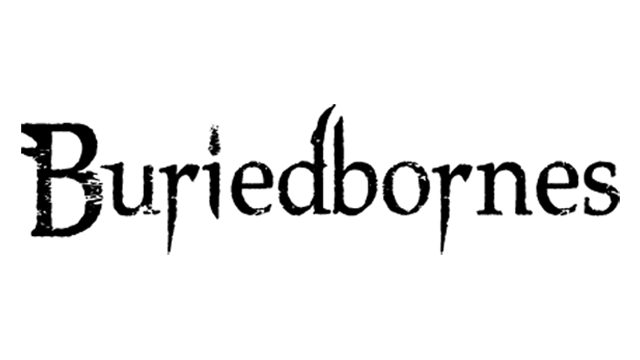- Consider the cause of death
- Lose all HP
- Petrify
- Ailments
- Reflect damage, Damage over time, Delayed damage
- To protect yourself
- Increase HP
- Gain Shield
- Gain Barrier
- Use “Avoid” or “Parry”
- Gain “Resistance”
- “Cure” ailments
- Have a “non-attack” skill
- Example for defensive abilities
- Example for resistance abilities
- Extra: avoid troubles in moving
Consider the cause of death
In Buriedbornes, adventurers die quickly.
While there are exceptions, such as resurrection, once they die, the adventure is basically over.
In order to continue adventuring longer and deeper into the levels, it is of utmost importance to “not die.
Lose all HP
If you are damaged by an enemy attack and your HP is reduced to 0, you will die.
This is not such a problem in the lower levels, but in the deeper levels, it is not uncommon to receive heavy damage from a single blow, and it is not uncommon for HP to drop from maximum to zero.
Petrify
Some enemies will inflict petrification.
Alternatively, some will use the “evil eye,” which inflicts petrification on the attacker by being attacked.
If the petrification exceeds 100%, the attacker will die immediately.
Ailments
Even an opponent who should be unbeatable in a normal fight may die at an unexpected moment because the battle does not proceed as calculated due to “confusion,” in which actions are uncontrollable, or “slow,” in which cooldowns increase and skills cannot be used.
Reflect damage, Damage over time, Delayed damage
There are other opportunities to receive damage besides direct attacks.
You may attack an enemy in “Reflect damage” status and receive reflection damage, or you may receive damage at an unexpected time due to continuous damage or delayed damage.
To protect yourself
There are 3 important things to do to avoid death.
- Take countermeasures against damage.
- Take countermeasures against ailments.
- Avoid dangerous cases.
Increase HP
The basic countermeasure against damage is to increase HP.
You can increase maximum HP with equipment or have a recovery skill such as “healing” to recover reduced HP immediately.
Since recovery alone is not enough to deal with damage above the maximum HP, having damage reduction measures such as “Protection” is also good insurance.
There is also the ability to “Overheal” which can hold more than the maximum HP.
Gain Shield
Shield takes the place of HP. Unless the attacker has a penetrating effect, shields are reduced before HP.
There are 2 main ways to acquire shields. One is the initial shield granted at the start of battle, and the other is the shield granted by skills.
The former is excellent for continuous combat, as the shield is restored each time you encounter an enemy.
The latter can be continuously acquired throughout the battle, allowing you to outperform the damage you take, depending on how fast your cooldown turns.
Gain Barrier
Barrier is an ability that can prevent damage or the infliction of a ailment for one time as long as it is activated.
Like shields, there are two types of barriers: an initial barrier that is granted at the start of combat, and a barrier that can be granted by skills.
The barrier is powerful, but it is weak against continuous hits, and if it is not activated, it will normally take all the damage.
If the barrier is not activated, the user will take full damage, so do not be overconfident.
Use “Avoid” or “Parry”
“Avoid” and “Parry” can nullify direct damage with a certain probability.
The advantage of these abilities is that they can be used regardless of the opponent’s level. In addition, since “Avoid” and “Parry” are activated separately, if both are acquired, they will be activated at an extremely high probability, making it possible to nullify almost all attacks.
Of course, if you fail to activate them, you will take all the damage.
Gain “Resistance”
Many ailments can be nullified by gaining “Resistance”.
However, it cannot be activated 100% of the time, and there is a low probability of receiving it.
“Cure” ailments
Ailments that have been received can be cured later with a skill.
If you have the “cure” skill, for example, you can avoid the risk of being incapacitated for a long time even if you are hit by “confusion” because the confusion will be lifted when you automatically use the cure skill.
Have a “non-attack” skill
By possessing a “non-attack” type skill with a cooldown of 0, such as “Guard,” you can safely get through “non-attack” turns, such as “Reflect damage” and “Evil eye” turns.
Example for defensive abilities
Meat Armor = Nullifies less damage. By increasing the maximum HP and using mitigation, most of the damage can be nullified.
“Afterimage” = When you avoided, you temporarily become “invincible”. Although there are some cases where the “Afterimage” does not trigger, the “Afterimage” will give the “invincible”, making it less likely for accidents to occur.
Example for resistance abilities
“Simplify” = If the user already take some ailments, they will not take a new ailment. By using this ability, the user can maintain the state of not being affected by ailments by continuing to give himself a reinforcing effect with a skill that has a short cooldown.
Extra: avoid troubles in moving
Most direct causes of death occur during combat, but traps and room effects that appear during moving events can also be indirect causes of death. For a safe adventure, effects not directly related to combat are also important.
“Avoid Trap” = can nullify the demerit effects of events.
“Teleportation” = allows you to move directly to the back of the room when moving. By jumping over rooms that are obviously dangerous, you can avoid the risk.



